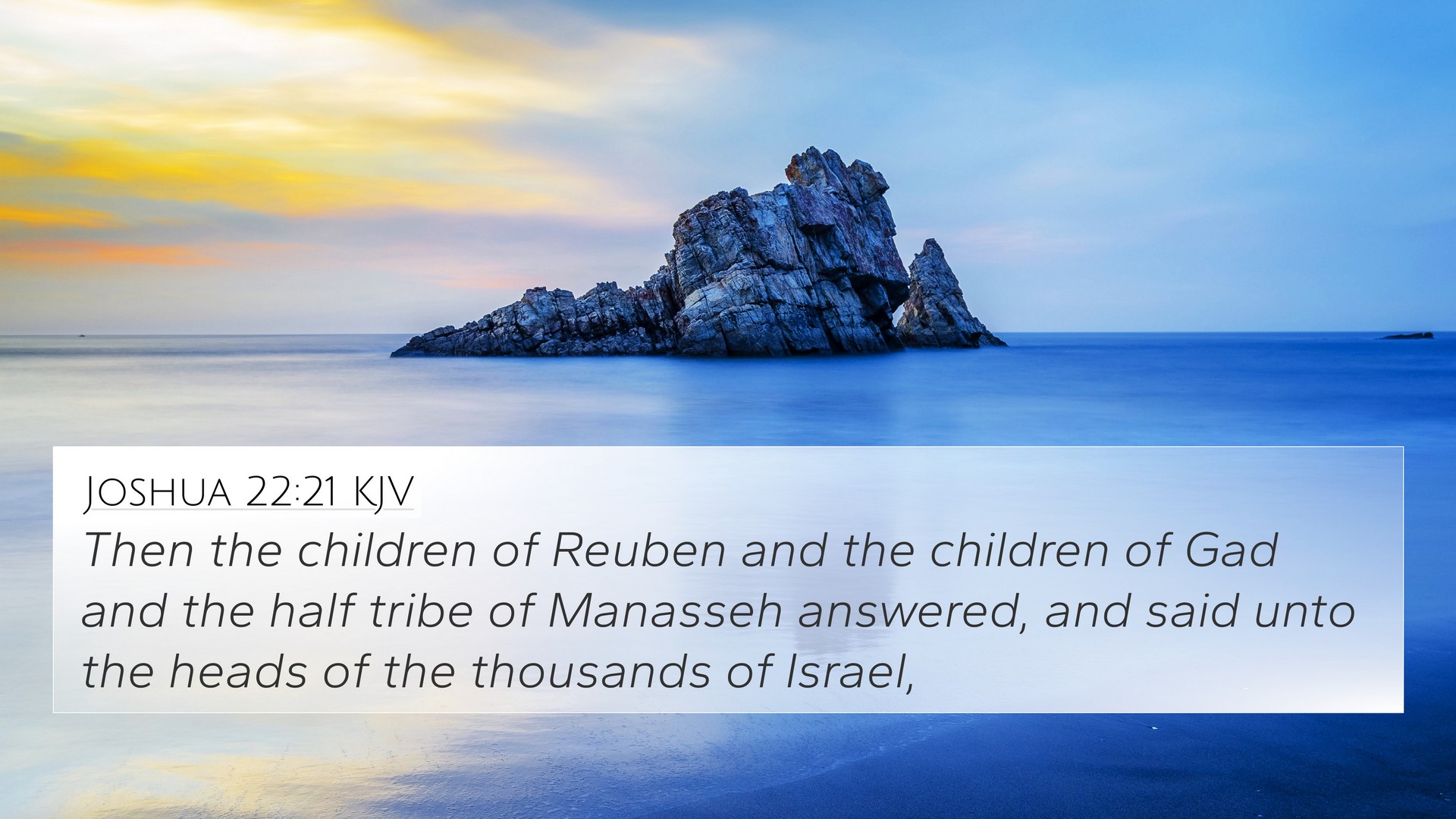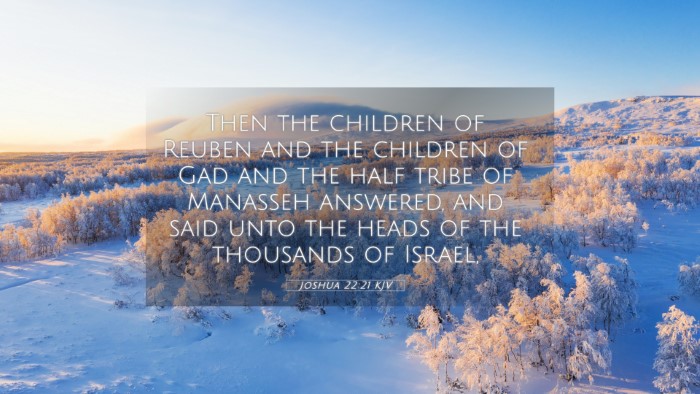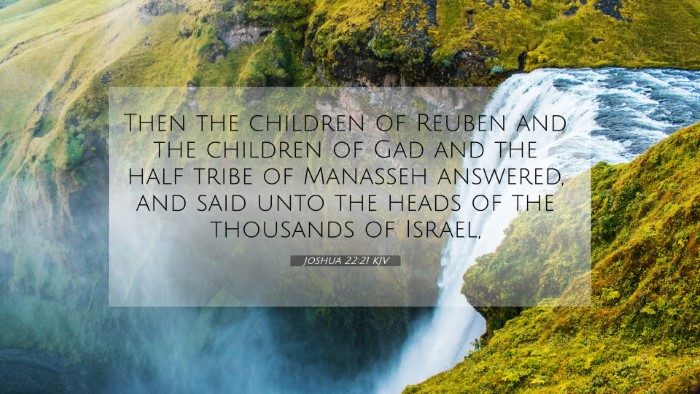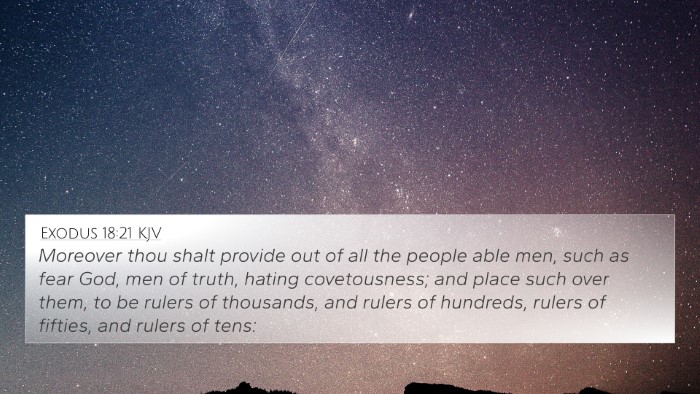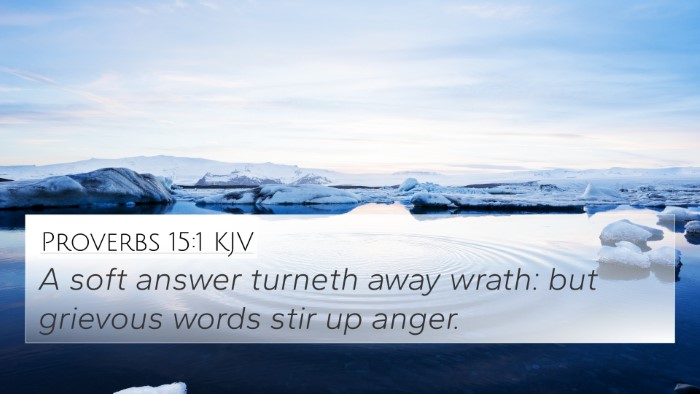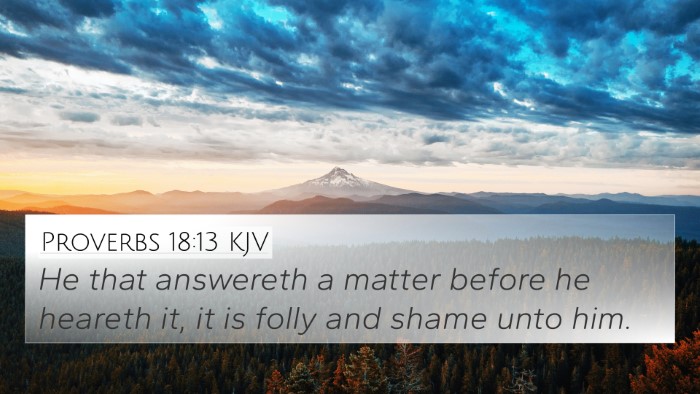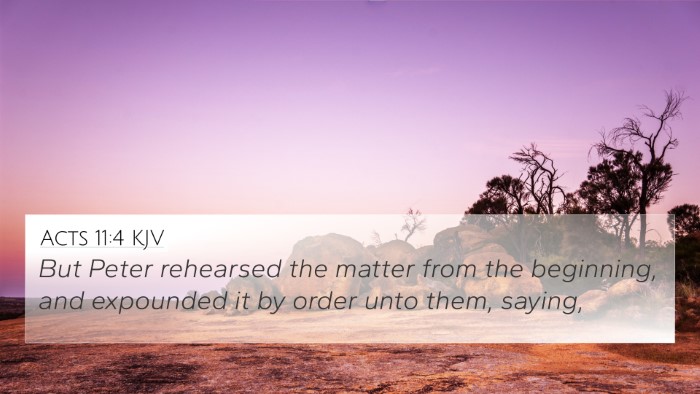Understanding Joshua 22:21
Joshua 22:21 states: "Then the children of Reuben and the children of Gad and the half-tribe of Manasseh answered and said to the heads of the thousands of Israel." This verse is part of a larger narrative concerning the tribes of Israel and their responsibilities and commitments following the conquest of Canaan.
Verse Context
In the preceding chapters, the tribes of Reuben, Gad, and Manasseh request land on the east side of the river Jordan. They promise to assist the other tribes in conquering the land west of the Jordan before returning to their inheritance. This verse highlights their readiness to address concerns about their actions and emphasizes their commitment to the collective responsibility of the Israelite community.
Commentary Insights
Key insights from public domain commentaries are summarized below:
Matthew Henry
Matthew Henry stresses the importance of communication and accountability in this verse. The tribes are proactive in defending their intentions, which is essential for the unity and peace among the Israelite tribes. Their response acts as a reminder of the importance of mutual support in fulfilling God's commands.
Albert Barnes
Albert Barnes highlights that this verse marks a significant moment of dialogue amongst the tribes. The growth of their identity as one people is depicted through their willingness to engage in dialogue. The answer from Reuben, Gad, and Manasseh serves to affirm their commitment to God’s directives and the importance of obedience within the community.
Adam Clarke
Adam Clarke emphasizes the nature of the response given by the tribes, indicating that it demonstrates a willingness to clarify and defend their actions. This reflects a broader theme of accountability in community life, portraying how each tribe plays a role in fulfilling the divine promise.
Thematic Connections
This verse offers moments of connection with various other scriptures that underline themes of unity, responsibility, and divine commitment. Below are some thematic Bible verse connections:
- Deuteronomy 3:15-17: This passage discusses the allocation of lands on both sides of the Jordan, similar to the tribes’ request in Joshua 22.
- Numbers 32:23: The verse encourages accountability, stressing that every individual is responsible for upholding promises made.
- Joshua 1:16-18: This speaks to the commitment of the tribes to support one another, underscoring the need for unity.
- 1 Peter 4:10: This verse discusses the use of gifts to serve one another, echoing the collaborative spirit seen in Joshua 22:21.
- Hebrews 10:24-25: This emphasizes stirring one another to love and good works, reinforcing the tribal engagement demonstrated.
- Philippians 2:2: This encourages the believers to be of the same mind, mirroring the unity expressed by the tribes.
- Galatians 6:2: Bear one another's burdens, showcasing a crucial part of community life highlighted in Joshua 22.
Connecting Themes Across the Bible
The interconnectedness of themes across the Bible gives depth to Joshua 22:21. For instance:
- Cross-referencing Biblical texts can ultimately point us to the collective nature of faith and responsibility.
- Understanding links between the Old and New Testament shows how community and unity are crucial in God's plan from the beginning to the end.
- The emphasis on collaborative commitments in this verse can be paralleled with the teachings of Jesus about community in the church.
- Comparative Bible verse analysis enriches our understanding, allowing us to draw parallels with how New Testament teachings reflect the importance of accountability and mutual support.
Conclusion
The inquiry into Joshua 22:21 not only reflects individual interpretations but also invites a broader understanding of how diverse biblical themes correlate and interact within the scriptures. Engaging with resources such as a Bible concordance or a cross-reference Bible study guide can significantly enhance one’s understanding of these connections.
As we explore the scriptural cross-referencing, we see how the relational dynamics among the tribes contribute to the overall narrative of God's covenant with Israel — a theme that runs throughout the Bible.
